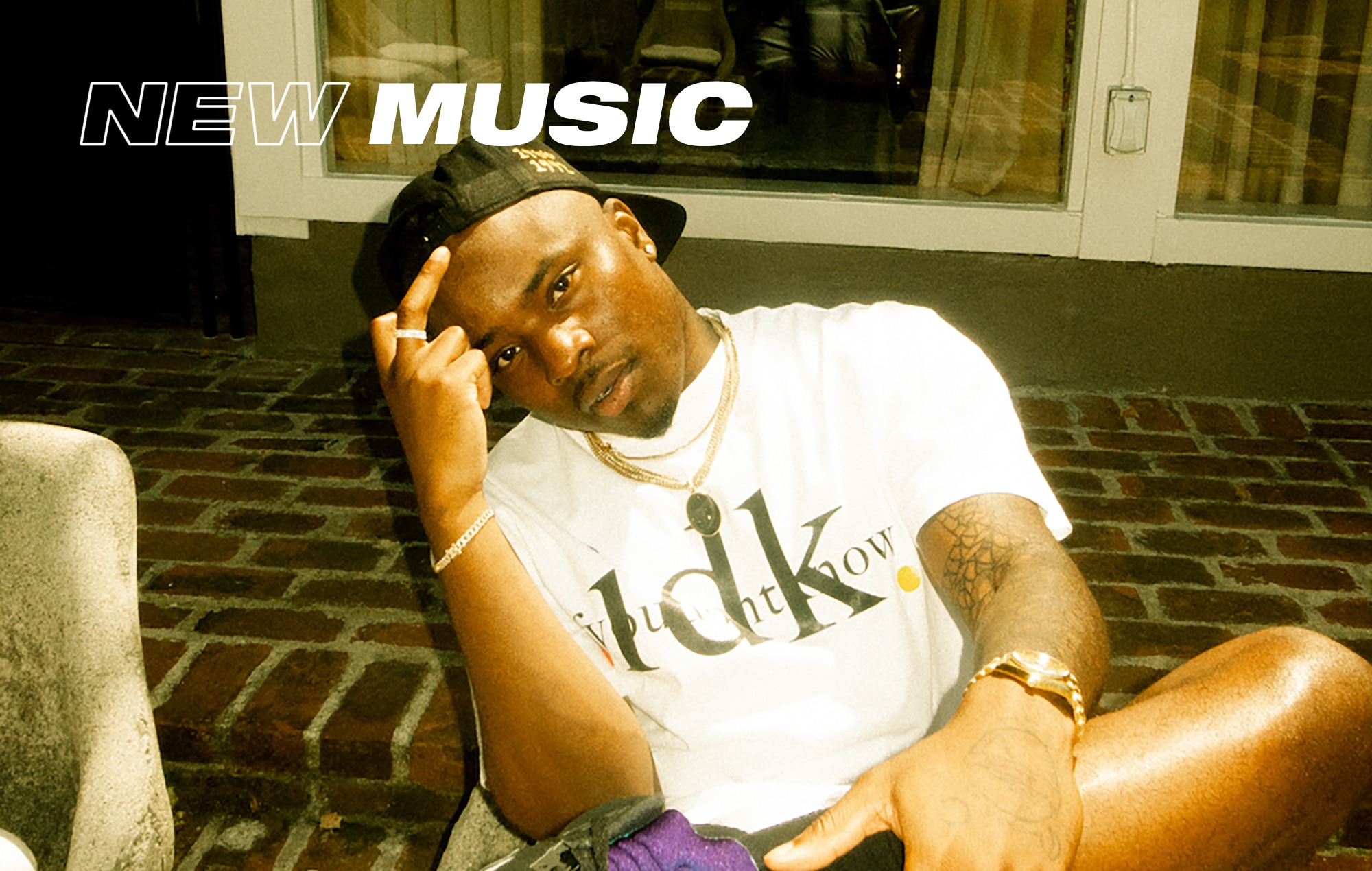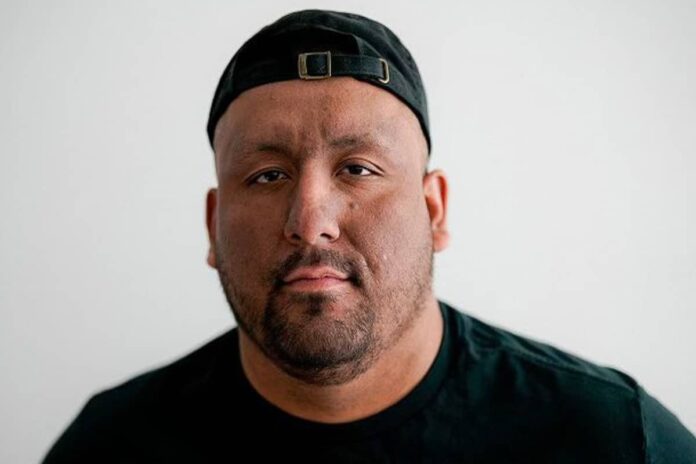
IDK: “In prison, I made a plan to be a rapper, mapped it out and then actually executed it”
Hip-hop is a robust example of evolution: four decades in, its modern face is both unhinged and multifarious in composition. Jason Mills, AKA Ignorantly Delivering Knowledge (IDK), is contemporary hip-hop personified. Honouring older conventions within the genre such as penmanship and flow, IDK’s songs break new ground by traversing convoluted lyrical minefields about growing up (such as ‘17 Wit A 38’) and grappling with conflicting feelings of paranoia and braggadocio (‘Bad News’).
Burrowed beneath the London-born, Maryland-raised 28-year-old’s divergent approach to the mic is a foundational crux, Ignorantly Delivering Knowledge. Mills says its acronymic form was the only name that made sense to him to use as his moniker. “Ignorance is the best way for some people to learn. Listeners can equate IDK to making a mistake, doing something wrong and sometimes learning the hard way,” he offers, gathering his thoughts on a Zoom call with NME from LA. “IDK is always evolving, though. For now, it’s me learning while doing the fly shit, learning and having fun. IDK will always grow with me in some way.”
Mills released ‘Is He Real?’, his debut album as IDK, just over a year ago, and followed that up in June by dropping the sequel to his 2018 ‘IDK & Friends’ project. Featuring peers such as Rico Nasty, Yung Manny and Wale, Mills tells NME that ‘IDK & Friends 2’ is dedicated to spreading unity among artists from the DMV (Washington D.C., Maryland, Virginia) area. “In an album I spend a lot of time going off of specific feelings and stories,” Mills explains about its curation. “This time round it wasn’t a narrative necessarily, but more of a sound of my city and the DMV.”
The record also serves as the soundtrack to NBA star Kevin Durant’s recent documentary Basketball County: In The Water, which spotlights basketball stars from Mills’ childhood home of Prince George’s County, Maryland. “I actually got to score the documentary as well,” he nonchalantly adds, albeit with a clear hometown pride in his tone.
Navigating a rap career is never easy. One of the most important lessons which helped spearhead Mills’ concerted investment in his chosen artform manifested during a stint in prison when he was 17. While in jail, where he was initially sentenced to three years, he not only learned how to rap — with the help of listening to early releases by J. Cole and Kendrick Lamar, such as the latter’s ‘Section .80’ — but he also honed in on his goal of becoming a visionary, with his imagination emerging as his greatest tool. “In prison, you have nothing but your mind: there’s so many limitations to what you can do,” he recalls. “Prison was the first time that I used that part of my brain: I made a plan to be a rapper, mapped it out and then actually executed it.”
“humans just haven’t figured out how to care for one another and work together, we need to figure that out”
In addition to realising his own musical aspirations, Mills was driven by his desire to help his fellow inmates by helping them gain their G.E.Ds (General Equivalency Diplomas, an equivalent to a high school diploma in the US): “With the G.E.Ds, I had a college education the last time I was in prison. I got two questions wrong [on the G.E.D], so because of that they let me become a tutor to help others do this. I got about $30 a month.” Mills also felt compelled to tutor specifically because of his own experiences of incarceration, noting to NME that he was eager to help others and give back to his community in a substantial way during his sentence.
Mills’ biggest milestone yet in fulfilling his prison dreams of becoming a rapper arrived last year with the release of his debut album as IDK. The ambitious 14-track ‘Is He Real?’ takes on a plethora of subject matter, including questioning the existence of God, human biology and erotica. Album cut ‘Porno’ is a potent example of the concoction of these themes, stating: “The bible say beating my dick and killing is equal / But that don’t add up”.
Addressing the record’s weighty themes, Mills ironically shares with NME that he is now adamant that God is in fact real and that the deity is the only thing that rationalises the movement of the world. “If you break down the way the world works, the way things need one another to work together, or if you even break down our anatomy — God is real,” he says. “Us as humans just haven’t figured out how to care for one another and work together, we need to figure that out. God is the greatest engineer of all time, though.”
Boasting guest features from the likes of Tyler, The Creator, Pusha T and DMX, ‘Is He Real?’ saw Mills cherry-pick all of the contributors based on his own tastes and gut feeling before then pitching it out, in its entirety, to labels. “I hang out with everybody. I’ve always been like how I am musically. You’ll always see a bunch of people on my projects that you may think don’t really make sense,” he explains, before clarifying: “I work with everybody that I fuck with.” Labels were instantly fascinated by his knack for diversity. “I created a bidding war with multiple labels [because of ‘Is He Real?’]. People heard the album and felt like no one else was doing it like this. People seriously wanted to be a part of pushing this album.”
Even as the story behind Nigerian afro-fusion star Burna Boy’s appearance on the zesty and flirtatious love song ‘December’ surfaces, it’s clear that Mills’ ear for and fascination with global genres comes to him naturally. “I’ve been a fan of [Burna Boy] for years, since ‘Like To Party’. As soon as I heard the beat, before I’d written anything, I knew he had to feature.”
IDK’s network TV debut in the US took place in July with an emotive performance of ‘No Cable’ on The Late Show with Stephen Colbert, during which Mills tackled the distressing political landscape across America with a statement that honed in on unemployment during COVID-19, voting, protests and more. “They want you to protest, I said: ‘Did you vote yet?’” he demands during the 23-second introduction. “I just said what I felt, how I’ve been feeling as a Black man in this country,” Mills says of the sentiment behind his passionate performance. “I’m in two different places. One place is angry at how deep the racism actually is. But, on the other side, there are non-people of colour who are stepping up to the plate and accepting that change is something that needs to happen. There’s way more awareness than there’s ever been.”
Possessing such a self-assured approach to his messaging and having a multitude of back-of-house skills has naturally invited comparisons to the likes of early Kendrick Lamar, Kanye West and Eminem. Mills welcomes such associations, but is unphased by it. “My influence will always come from what I listen to or what I think the highest form of music is,” he says, before stopping to take a considered pause. “I understand my influence, but I’m always thinking of how I can do things out of the box; trying to think of a new way of how to put things together. That’s only going to grow and get better with time.”




